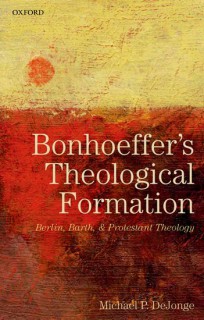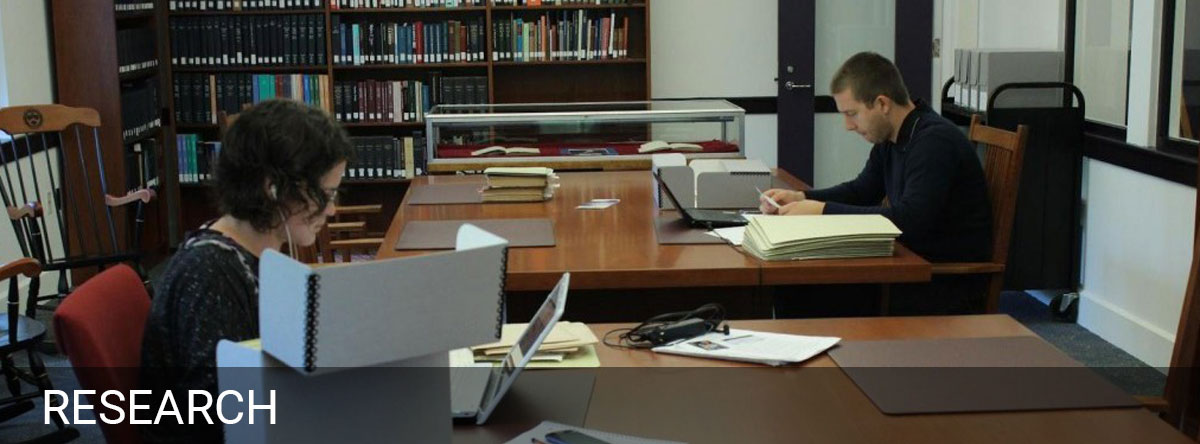 DeJonge, Michael. Bonhoeffer’s Theological Formation. (Oxford: Oxford University Press, 2012), xiv + 158pp. $95.00 (hardback)
DeJonge, Michael. Bonhoeffer’s Theological Formation. (Oxford: Oxford University Press, 2012), xiv + 158pp. $95.00 (hardback)
Reviewed by Jeffrey Skaff (April 26, 2016)
Dietrich Bonhoeffer’s Habilitationsschrift, Act and Being, is notoriously difficult to understand. In a new book, which began as a dissertation at Emory University, Michael DeJonge, Associate Professor in Religious Studies at University of South Florida, has done a great service to both those new to Bonhoeffer and those who have studied him for years by shedding light on a text many have found virtually inscrutable.The book is not limited, however, to summary and analysis of Act and Being. As the title of the book indicates, DeJonge is most interested in identifying Bonheoffer’s intellectual influences and interpreting his relationship to them. Karl Barth is the main figure in view. In chapter one, DeJonge sets the stage. He describes Bonhoeffer as existing “between Berlin and Barth” (1). While a student in Berlin in the early 1920s, Bonhoeffer encountered Barth’s writing. This led him to begin criticizing the excesses of “historical-critical theology,” including that practiced by his teachers, Reinhold Seeberg, Karl Holl, and Adolf von Harnack (4). At the same time, Bonhoeffer’s relationship to his teachers was never wholly critical. According to DeJonge, in Act and Being Bonhoeffer seeks to merge Berlin and Barthian theology through “a concept of revelation that is both contingent and historically continuous, that captures the characteristics of both act and being” (7). The concept of “person” is the means by which he does so.
The next two chapters in particular expand and develop these claims through close engagement with Act and Being. Chapter two investigates what Bonhoeffer means by “act” and “being,” focusing in particular on what he sees as the philosophical problem of the relationship between them: how to coordinate act and being such that act does not overpower being, or vice versa (19). Interpreting Bonhoeffer on these points is no easy task, but DeJonge’s reading clarifies and convinces. In chapter three, DeJonge turns from philosophy to theology, summarizing Barth’s “act-theology” of the 1920s. He particularly highlights the Reformed dimensions of Barth’s understanding of revelation, which he finds in Barth’s emphasis on the freedom of God and in his commitment to the Reformed non capax, the latter of which is epitomized in the Reformed insistence on the distinction of natures in the person of Christ (47).
Chapter four then presents Bonhoeffer’s alternative to Barth. Bonhoeffer criticizes Barth’s understanding of the freedom of God for making revelation “momentary and discontinuous” (57) and thereby emphasizing discontinuity in the faith of the believer. Although Bonhoeffer shares Barth’s concerns about revelation becoming a merely human possibility, Bonhoeffer believes that the category of “person” unifies subjectivity and objectivity in revelation in a way Barth’s “act-theology” cannot. “A person, unlike a subject, has historically continuous being. A person, unlike an object, escapes the power of the mind and is therefore free to encounter existence” (71). “Personality” equips Bonhoeffer, according to DeJonge, to offer “a ‘substantial’ account of freedom, where God is not free from but rather free for humanity” (76).
Chapter five argues that Bonhoeffer links his understanding of “personality” existing beyond subjectivity and objectivity to the specifically Lutheran insistence on the union of God and humanity in Christ. It is “Christ’s unique mode of being (its Personsein or personale Seinstruktur) that keeps Christ free from objectification and facilitates Christ’s presence in the church” (96). By doing so, “Bonhoeffer rejects what is essential to Barth’s [Reformed] Christological thinking, the discussion of divine and human natures apart from their unity in Christ” (98).
In chapter six, DeJonge evaluates Bonhoeffer’s position. Against both Charles Marsh and Christiane Tietz, who argue that Bonhoeffer’s criticisms of Barth “apply only to an earlier manifestation of Barth’s theology” (101), DeJonge argues that—despite some clumsiness in Bonhoeffer’s reading of Barth—Bonhoeffer’s constructive position offers a genuine alternative to even the mature Barth. Having established the Lutheran provenance of Bonhoeffer’s thought, chapter seven distinguishes it from the Lutheran Karl Holl’s “theology of conscience.” Finally, chapter eight briefly suggests how Bonhoeffer carries these themes from his early “academic” work into his later writings. Although Barth is not the target of Bonhoeffer’s polemics in the later works, DeJonge suggests that the differences between them that Bonhoeffer identified in Act and Being remain.
DeJonge’s claims regarding the significance and persistence of the distance between Barth and Bonhoeffer, first on the freedom of God and second on the proper ordering of abstract dogmatic reflection and the historical person of Christ are the most original aspects of DeJonge’s argument. They are also the most questionable. Since he argues that the differences between the two theologians remain throughout Barth’s writings, it is surprising that DeJonge only cites the Church Dogmatics twice (both from the christology of CD I/2). His suggestions that an understanding of divine “freedom for” cannot be found in Barth, and that Barth reconciles act and being “in the inner-Trinitarian subjective life of God” rather than “the historical person of Jesus Christ,” will be difficult to sustain before Barth specialists. For instance, they might point to the following passage from Barth’s 1956 essay titled “The Humanity of God”:
God wants in His freedom actually not to be without man but with him and in the same freedom not against him but for him, and that apart from or even counter to what man deserves…In this divinely free volition and election, in his sovereign decision (the ancients said, in His decree), God is human. His free affirmation of man, His free concern for him, His free substitution for him—that is God’s humanity. We recognize it exactly at the point where we also first recognize His deity. Is it not true that in Jesus Christ, as He is attested in the Holy Scripture, genuine deity includes in itself genuine humanity? (John Knox Press, 1978, pp. 50-51).
DeJonge’s exposition of Bonhoeffer is clear and compelling. It is essential reading for anyone wishing to understand Act and Being better. Exposition aside, Dejonge’s interest in investigating Bonhoeffer’s intellectual influences is important, as is his desire to establish him as a theologian in his own right. The latter task, however, should not be made to depend on building fences between him and Barth. Bonhoeffer was not interested in doing so, especially after Act and Being, and his theology can stand on its own without it.
The views expressed here are strictly those of the author; they do not necessarily represent the views of the Center for Barth Studies or Princeton Theological Seminary.


